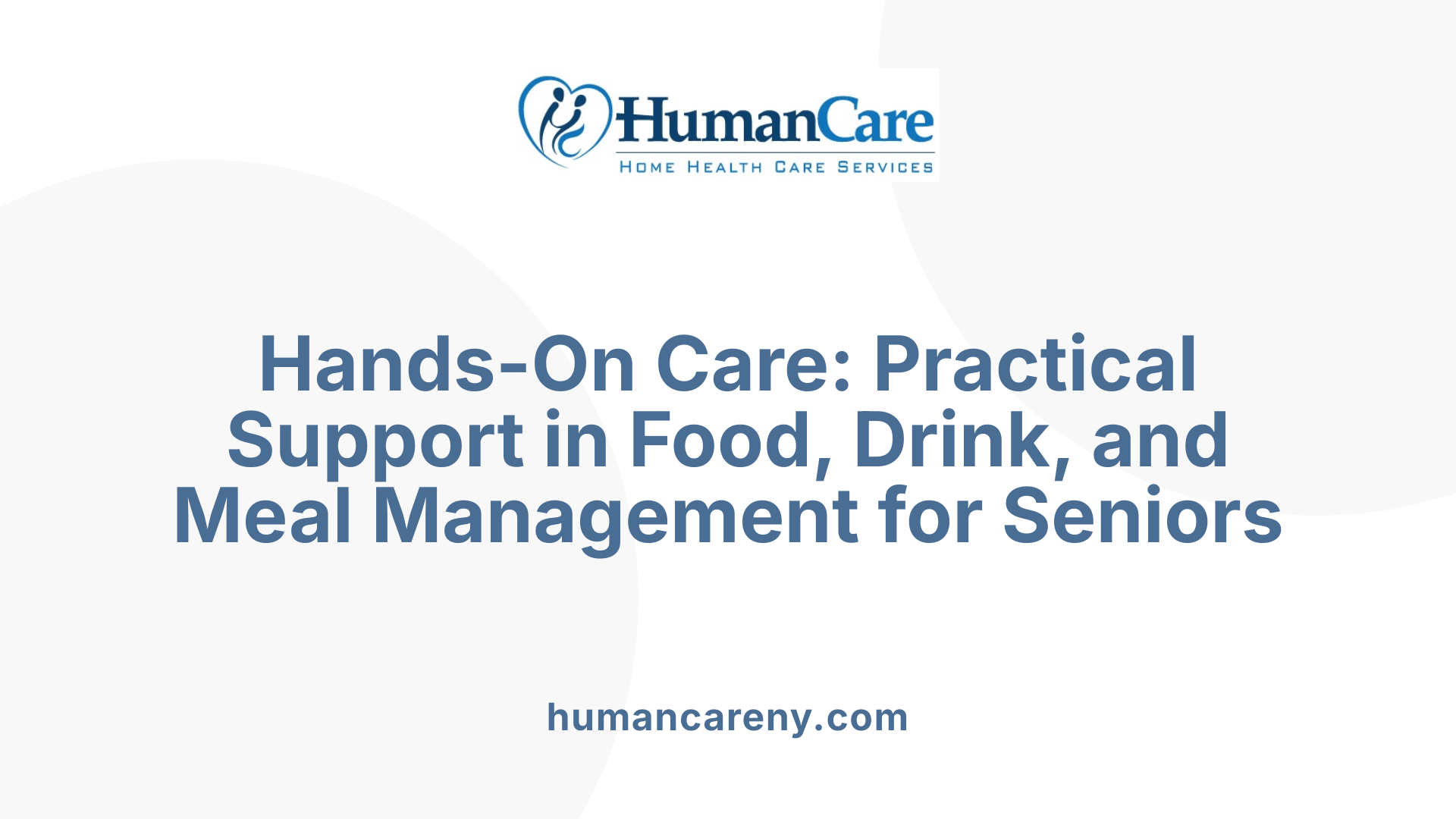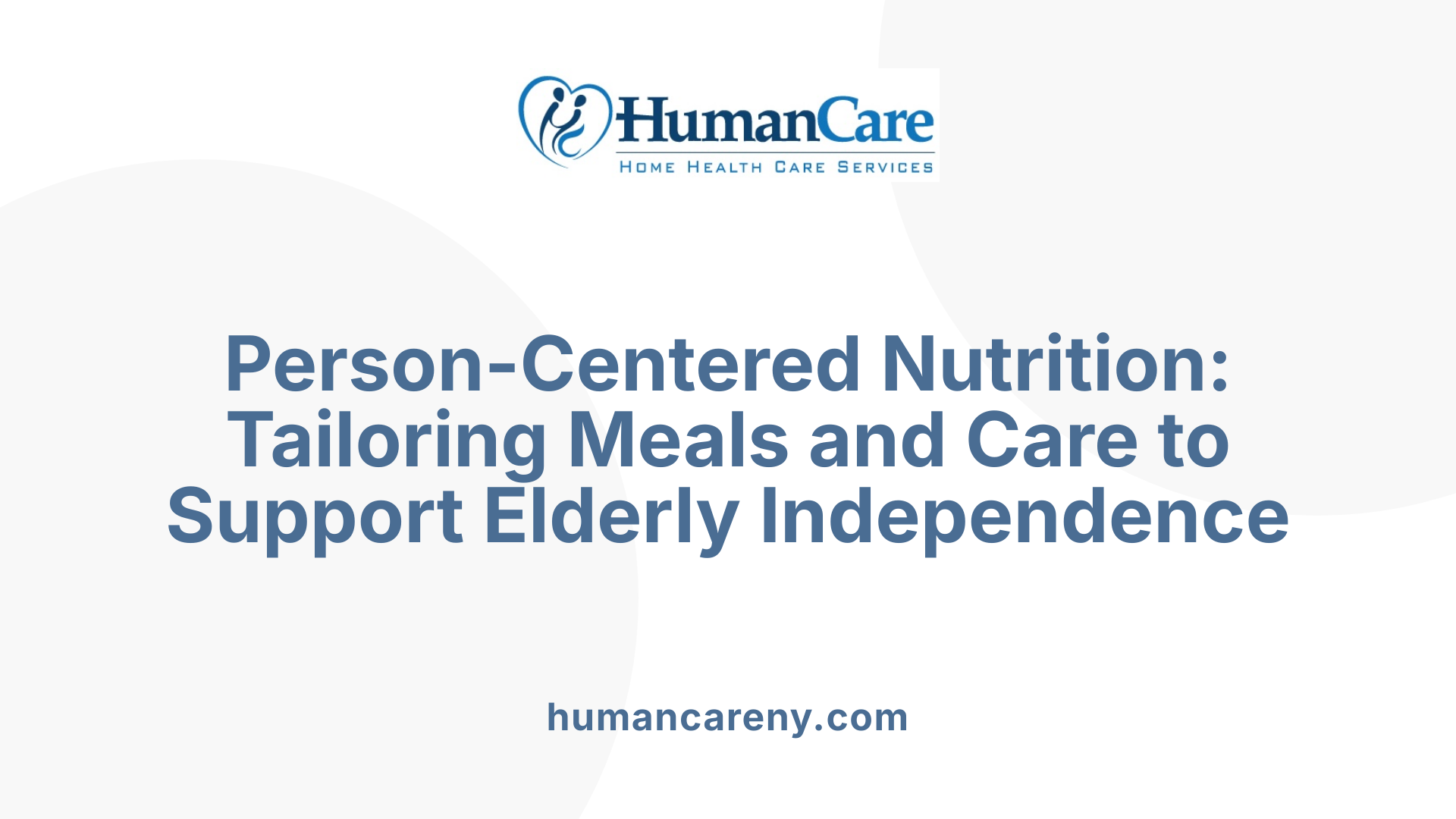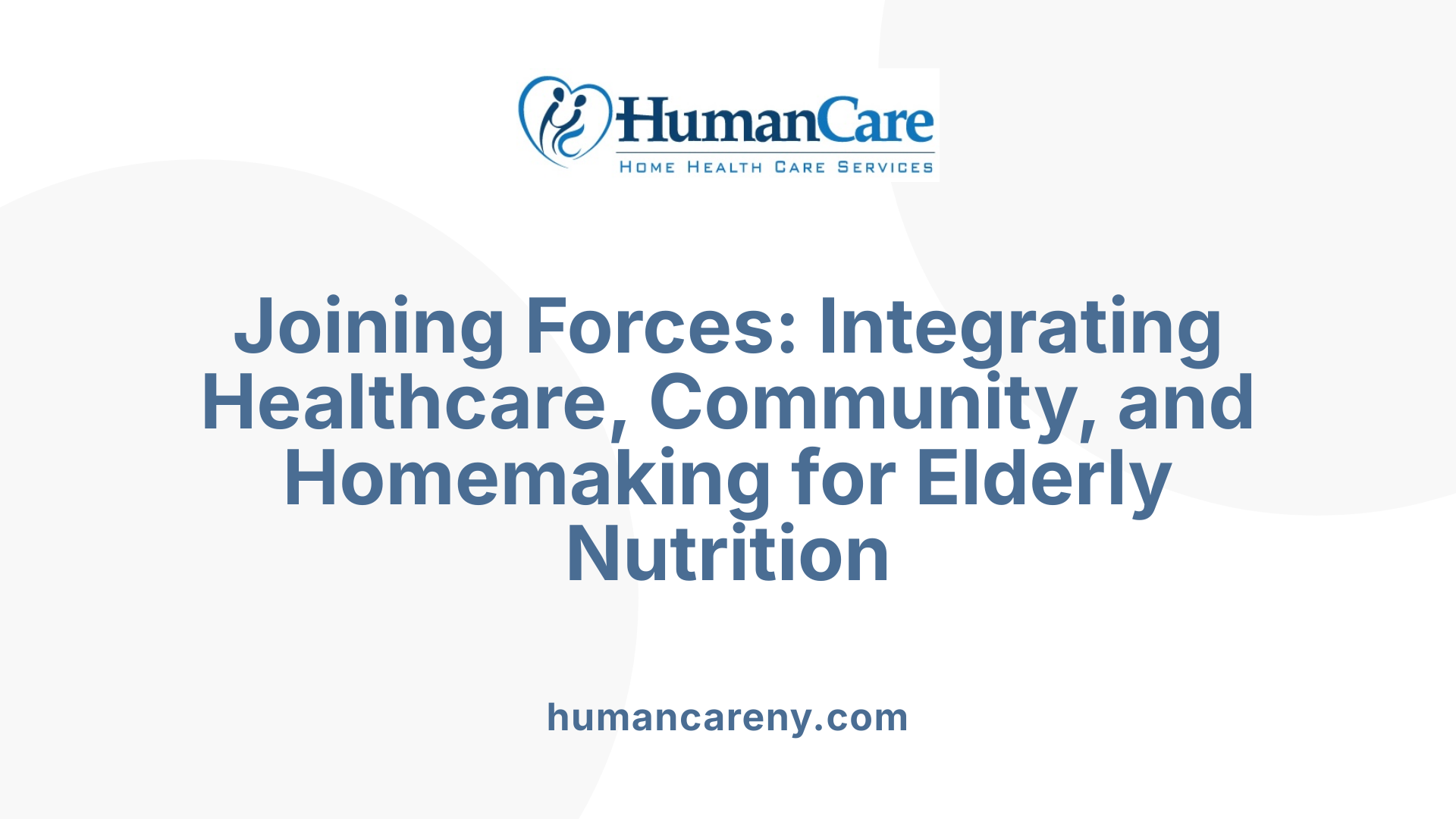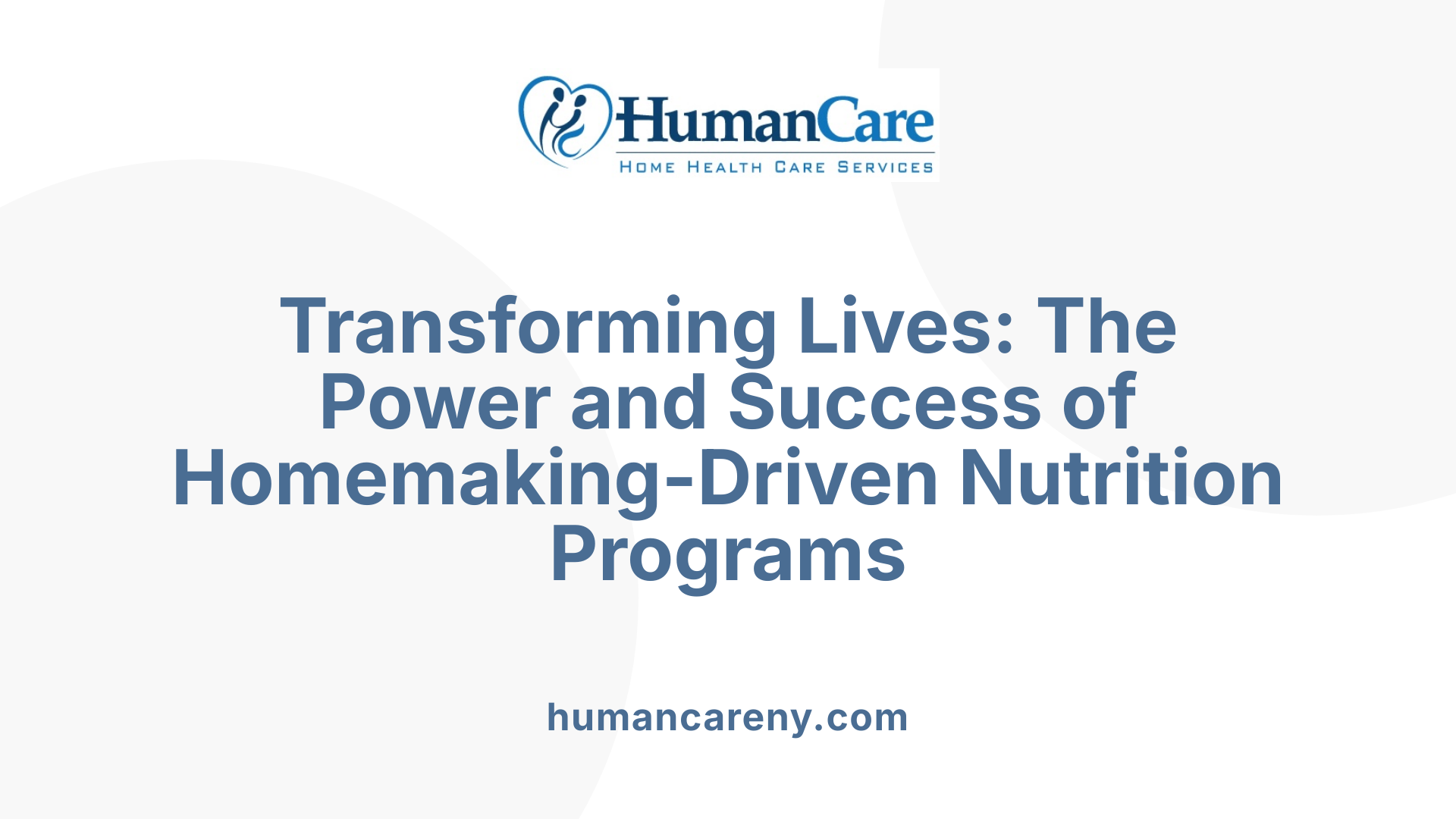Understanding the Impact of Homemaking Services on Senior Nutritional Health
As the global population ages, ensuring proper nutrition among elderly individuals has become a vital public health focus. Homemaking services, often a cornerstone of home-based care, play a crucial role in supporting elderly clients to achieve better nutritional outcomes. Through personalized meal planning, assistance with shopping and meal preparation, and fostering social mealtimes, these services help overcome common challenges faced by seniors, such as diminished appetite, dental issues, and social isolation. This article explores how homemaking services contribute to improved nutritional health among older adults and highlights best practices and strategies that make this possible.
The Scope of Homemaking Services in Promoting Elderly Nutrition
Homecare services play a critical role in supporting the nutritional well-being of older adults by providing comprehensive food and drink-related assistance. This includes help with obtaining groceries, choosing nutritious foods, preparing balanced meals, and assisting with eating or drinking when necessary. Such support aims to uphold the individual’s basic nutritional needs, hydration levels, and respect personal, social, or cultural preferences, alongside ensuring their dignity and autonomy.
Caregivers are often closely involved in daily nutritional activities, which allows them to monitor and promote healthy eating habits. For example, monitoring weight, dietary intake, and hydration status helps identify early signs of malnutrition or dehydration. Assisting with shopping and meal preparation not only ensures access to nutritious ingredients but also allows caregivers to tailor meals to personal tastes and dietary restrictions, fostering a person-centered approach.
Effective collaboration between homecare providers, dietitians, and meal services significantly improves nutritional outcomes. Connecting clients with these specialized services ensures they receive tailored advice, nutrient-rich foods, and appropriate supplements, reducing the risk of undernutrition—which is common among elderly recipients of home-delivered meals.
Supporting seniors in maintaining their dietary autonomy is essential, especially since studies show that seniors who delegate their food activities tend to have poorer nutritional status. Conversely, those actively managing their own food choices generally enjoy better health outcomes. Caregivers can enhance this independence by creating adaptable, culturally appropriate meal plans and providing companionship during meals, which encourages regular eating patterns.
Home-delivered meal services are particularly vital given the increasing elderly population worldwide. These programs deliver nutritious, pre-prepared meals that meet dietary guidelines, often including texture modifications for those with dental or swallowing issues. Satisfaction with such services is high, with around 90% of recipients expressing contentment and many wishing to continue these services.
Empirical evidence indicates that structured meal programs can lead to weight gain, increased body mass index, and improved muscle mass in the elderly within just three months of intervention. Notably, benefits like increased fat-free mass tend to persist even after the service ends, highlighting the potential for sustained health improvements.
Home caregivers, often trained as home health aides, create individualized meal plans that respect dietary restrictions such as low sodium or carbohydrate-controlled diets. They also monitor food and water intake and encourage regular mealtimes and hydration, thus promoting overall health and wellbeing.
In addition to direct food support, homecare services often link clients to other health resources, including nutritional counseling, community meal programs, and supplemental food assistance. These integrated efforts aim to address the multifaceted nutritional needs of elderly individuals, ensuring they receive comprehensive care tailored to their health status and personal preferences.
Understanding the various dimensions of support—ranging from meal preparation and monitoring to social dining and resource linkage—underscores the importance of homemaking services in enhancing the quality of life for older adults. By fostering independence, ensuring safety, and providing emotional support, caregivers contribute significantly to maintaining optimal nutrition and health among seniors.
| Service Aspect | Description | Impact | Like Example |
|---|---|---|---|
| Food Preparation | Assistance in cooking and portion control | Ensures balanced meals respecting dietary needs | Tailored low-sodium meals for hypertensive seniors |
| Monitoring | Weight, hydration, and dietary intake tracking | Detects early nutritional deficiencies | Regular weight checks revealing potential malnutrition |
| Meal Advocacy | Encouraging regular eating, social meals | Promotes appetite and emotional wellbeing | Facilitating group dining experiences |
| Resource Connection | Linking to dietitians and community services | Addresses comprehensive nutritional needs | Referrals for vitamin supplementation |
| Personalization | Respect for preferences and cultural diets | Increases meal acceptability | Including traditional dishes in meal plans |
Detailed understanding of these services and practices helps in designing effective, respectful, and person-centered nutritional care for older adults. The collaboration among healthcare professionals, caregivers, and community resources is crucial for sustaining improved nutritional health in aging populations.
Practical Support in Food and Drink Management by Homemakers

Helping with shopping and meal preparation
Homecare providers play a vital role in assisting older adults with their food-related activities. This includes helping with grocery shopping, which can be challenging for seniors due to mobility issues or difficulty navigating stores. Support also extends to meal planning and preparation, ensuring meals are nutritious, culturally appropriate, and aligned with any dietary restrictions such as low-sodium or texture-modified diets.
Homecare workers may accompany clients to stores, assist in selecting healthy foods, and prepare meals in the home. By customizing meal plans according to individual preferences and health needs, they promote better eating habits and ensure that older adults receive adequate nutrition. These activities help maintain independence and support a balanced diet, critical for healthy aging.
Assisting during meals and with actual feeding when needed
During mealtimes, homecare aides often assist with eating, particularly for individuals with physical limitations or cognitive impairments that hinder self-feeding. This support may involve helping with utensils, ensuring proper positioning, and encouraging steady, manageable bites to prevent choking.
Assistance during meals not only facilitates adequate food intake but also fosters social and emotional well-being. Sharing meals with a caregiver can turn eating into a pleasant social activity, reducing feelings of loneliness and improving overall mood.
Monitoring weight, dietary intake, and hydration status
A crucial part of homecare support involves ongoing monitoring of nutritional status. Caregivers regularly check weight, record dietary intake, and observe hydration levels to detect early signs of malnutrition or dehydration.
Monitoring helps identify problems such as unintentional weight loss, inadequate food or fluid consumption, or changes in physical health. Early intervention can then be implemented, such as adjusting meal plans or coordinating with healthcare providers, to prevent nutritional deficiencies.
This continuous oversight ensures that older adults maintain their health and sustain their independence, improving their quality of life and reducing the risk of health complications.
The importance of collaborative efforts
Effective nutritional support often involves collaboration among homecare providers, dietitians, and meal services. Such teamwork ensures personalized care that addresses the unique needs of each individual, promotes proper nutrient intake, and helps prevent malnutrition.
In conclusion, practical support by homemakers in food and drink management encompasses a range of activities—from shopping to monitoring health indicators—that help older adults maintain optimal nutrition and hydration. This comprehensive approach supports health, independence, and well-being in aging populations.
Enhancing Personalized, Person-Centered Nutritional Care

How does spending more time with older clients support nutritional care?
Homecare workers who spend more time with elderly clients have a distinct advantage in delivering personalized nutrition support. Their familiarity with the client’s living environment, daily routines, and personal preferences allows them to tailor meal plans that respect dietary restrictions and cultural backgrounds. This closeness fosters trust and understanding, making it easier to encourage adequate food and fluid intake.
Moreover, caregivers who develop strong relationships with their clients can better observe subtle changes in eating habits, weight, or hydration status. These insights enable early intervention to prevent malnutrition and dehydration. The time invested in these relationships is essential for creating a supportive atmosphere where seniors feel valued and motivated to maintain healthy eating habits.
Supporting personalized meal plans that respect dietary restrictions and cultural preferences
Effective nutritional care involves designing meal plans that accommodate individual health needs, such as diabetic, heart-healthy, or soft-texture diets. Caregivers work closely with dietitians and clients to develop menus that respect cultural food preferences and traditions, making it more likely that seniors will enjoy and adhere to their diets.
Creating varied, colorful, and flavorful meals using herbs, spices, and culturally familiar ingredients can enhance eating experiences. Personalization also includes considering food allergies, sensitivities, and personal dislikes, fostering a positive relationship with food.
Why is monitoring dietary habits and nutritional status essential?
Regularly monitoring what older adults eat and drink is vital for maintaining their health. Caregivers check weight trends, hydration levels, and dietary intake to identify early signs of nutritional risk. Keeping track of these factors helps adjust meal plans promptly and effectively.
By maintaining detailed records, caregivers can provide valuable insights to healthcare professionals for ongoing nutritional management. This proactive approach reduces the likelihood of malnutrition, promotes better health outcomes, and supports aging in place comfortably and safely.
Promoting interest in healthy foods among seniors
Caregivers can foster enthusiasm for nutritious eating by offering a variety of colorful, appealing foods. Preparing meals that look vibrant and have engaging textures encourages seniors to enjoy their food. Creating a relaxed mealtime atmosphere and involving seniors in meal choices increases their interest.
Using food presentation techniques, incorporating fortified foods, and seasoning with herbs or citrus can make healthy options more tempting. Social aspects, such as shared meals and involving seniors in shopping and cooking, further enhance their motivation to maintain a nutritious diet.
This engagement not only improves nutritional intake but also enriches the social and emotional aspects of eating, which are crucial for overall wellbeing.
| Aspect | Approach | Benefit |
|---|---|---|
| Building Relationships | Spending quality time and engaging in conversation | Increased trust and tailored care |
| Personalized Meal Planning | Respecting dietary, cultural, and personal preferences | Better adherence and enjoyment |
| Monitoring | Tracking weight, intake, and hydration | Early detection of nutritional issues |
| Promoting Interest | Colorful presentation, participation, social meals | Increased appetite and enjoyment |
Fostering these aspects in homecare settings ensures that nutritional support is not only about food but also about promoting dignity, autonomy, and quality of life for older adults.
Integrating Nutritional Support With Healthcare and Community Resources

How can the nutritional status of elderly individuals be improved?
Enhancing the nutritional health of older adults requires a comprehensive approach that combines personalized care, community resources, and healthcare collaboration. A fundamental step is promoting the consumption of nutrient-dense foods—rich in vitamins, minerals, and essential nutrients—such as fruits, vegetables, whole grains, lean proteins, and low-fat dairy products.
To combat common age-related physical and social barriers to good nutrition, strategies include making meals flavorful with herbs and spices, simplifying food preparation, and providing assistance with shopping and cooking. Addressing dental issues or swallowing difficulties through adapted textures or specialized foods can also enhance intake.
Social factors like loneliness significantly impact eating habits. Creating opportunities for social dining and regular mealtimes can improve appetite and emotional well-being. Participation in organized community programs like congregate meals or home-delivered meal services provides not only nutrition but also social support, reducing feelings of isolation.
Hydration is another critical aspect. Older adults often experience decreased thirst sensation, raising the risk of dehydration. Encouraging regular fluid intake through accessible beverages such as water, fortified plant-based drinks, or unsweetened fruit juices helps maintain hydration.
In addition to dietary modifications, physical activity promotes appetite stimulation and helps maintain muscle mass and bone density, aiding overall health.
Healthcare providers, especially registered dietitian nutritionists, play an essential role in screening for nutritional deficiencies and developing individualized care plans. Regular nutritional assessments using screening tools help identify at-risk elders early, allowing timely intervention.
For individuals facing eating challenges or at risk of malnutrition, targeted measures like oral nutritional supplements or specialized diet plans are often recommended. These interventions, integrated into their overall health management, can significantly improve nutritional outcomes.
Collaboration with dietitians and healthcare professionals
Effective nutritional support for the elderly hinges on collaboration among homecare providers, dietitians, and other healthcare professionals. Dietitians provide expert assessments and tailored advice, while healthcare practitioners address medical conditions that may affect nutrition, such as chronic diseases or medication side effects.
Homecare workers and aides contribute by monitoring dietary intake, assisting with meal preparation, and offering companionship during meals, thereby fostering a positive eating environment. They can also identify early signs of malnutrition or dehydration, referring elders to professionals for further evaluation.
Participation in community nutrition programs like meal services and social dining
Community programs such as the Senior Nutrition Program offer nutritious meals through congregate dining at senior centers or home-delivered services, aligning with dietary guidelines. These programs not only provide essential nutrients but also promote social interaction, which is vital for mental health and sustained eating habits.
Participation in social dining can increase food intake, improve mood, and foster a sense of community among older adults. Education sessions on budget-friendly shopping, healthy cooking, and disease management further support nutritional well-being.
Utilizing government and community resources to improve access to healthy foods
Various government initiatives and community organizations facilitate access to nutritious foods for seniors. Programs like the Supplemental Nutrition Assistance Program (SNAP), Commodity Supplemental Food Program (CSFP), and local food banks help alleviate food insecurity.
Home-delivered meals programs ensure that homebound seniors receive balanced, portion-controlled meals, tailored to their medical and cultural needs. These services often include safety checks and provide opportunities for social engagement.
Community resources also encompass transportation services to grocery stores, nutritional counseling, and education on safe food handling and preparation.
Efforts to integrate these services with healthcare initiatives amplify their impact, ensuring older adults maintain adequate nutrition and overall health.
| Aspect | Description | Additional Details |
|---|---|---|
| Nutritional Selections | Emphasize fruits, vegetables, lean proteins, whole grains | Reduces risk of chronic diseases |
| Social Engagement | Group meals, social dining events | Improves mental health and eating habits |
| Support Services | Meal delivery, dietary counseling | Facilitates access and personalized nutrition |
| Healthcare Collaboration | Regular screening, dietitian support | Early detection and management of deficiencies |
| Government Resources | SNAP, CSFP, nutrition programs | Broader access to healthy foods |
In conclusion, improving the nutritional status of older adults involves a multi-faceted approach that combines personalized medical care, community programs, and accessible resources. Regular collaboration among healthcare providers, caregivers, and community organizations ensures that elders receive the support necessary for healthy aging.
The Benefits and Success of Homemaking-Driven Nutritional Interventions

What are the benefits of home-delivered meals for older adults?
Home-delivered meals play a vital role in supporting the health and well-being of older adults. They not only provide essential nutrition but also help address issues such as food insecurity and poor dietary intake. These programs contribute to better health outcomes by supporting chronic disease management with tailored diets and reducing the risk of hospitalization and readmissions.
Beyond physical health, home-delivered meals promote social engagement and lessen feelings of loneliness among seniors. They help maintain routines, foster independence, and support recovery after medical stays. Overall, these services improve both health and quality of life, creating a holistic benefit for the elderly.
Satisfaction and engagement levels among seniors receiving meal services
Research indicates that satisfaction with home-delivered meal services is high, with approximately 90% of participants expressing contentment with most aspects of their meal programs. Many seniors find the meals appealing, nutritious, and convenient, which encourages regular consumption.
Engagement levels are also positive, with about 70% of seniors interested in continuing or similar services in the future. The social aspect of meal delivery, whether through group dining or friendly interactions with caregivers, significantly enhances their dining experience and emotional health.
Physical health improvements such as increases in body weight, BMI, and muscle mass
Participation in meal delivery and nutritional interventions has demonstrated measurable physical benefits. A study showed that elderly recipients who received nutritious home-delivered meals experienced significant increases in body weight, body mass index (BMI), upper leg circumference, and fat-free mass after three months.
These improvements indicate an enhancement in nutritional status and physical strength. Notably, even after stopping the intervention, increases in fat-free mass persisted, suggesting lasting benefits that can support mobility, independence, and overall health.
Long-term benefits and sustained nutritional improvements
Long-term benefits extend beyond initial physical gains. Continued engagement with quality meal services, dietetic counseling, and supplemental nutritional support can help maintain and even improve nutritional health over time. While most elderly individuals can benefit from such programs, challenges remain, such as ensuring all recipients meet their nutritional recommendations fully.
Effective collaboration among homecare providers, dietitians, and meal services is essential for addressing individual needs and promoting sustained nutritional improvements. Overall, providing high-quality, culturally appropriate, and personalized meal services is feasible, appreciated, and instrumental in supporting the health and independence of older adults.
Summary of Effects of Homemaking Nutritional Interventions:
| Aspect | Outcome | Additional Details |
|---|---|---|
| Satisfaction Levels | High | ~90% satisfaction, interest in future services |
| Physical Improvements | Yes | Increases in weight, BMI, muscle mass after 3 months |
| Long-Term Impact | Promising | Lasting benefits in fat-free mass, ongoing need for personalized services |
| Overall Benefits | Comprehensive | Supports health, independence, social well-being |
Implementing such interventions with community support, tailored meal plans, and ongoing monitoring can significantly improve the nutrition and lives of older adults, making homemaking-driven nutritional care a valuable component of elder health management.
Empowering Older Adults Through Nutrition-Focused Homemaking
Homemaking services form an essential part of the support system for elderly clients, not only assisting with daily living activities but also actively promoting better nutrition and health outcomes. Through personalized meal planning, assistance with food procurement, and fostering social mealtimes, caregivers help address common age-related nutritional challenges. The integration of homemaking with professional healthcare support, community programs, and educational resources ensures a holistic approach to elderly nutrition. As we continue to value aging with dignity and independence, investing in skilled homemaking services remains a vital strategy for enhancing quality of life, maintaining physical health, and preventing malnutrition among our senior population.
References
- The Role of Homecare in Addressing Food and Drink Care-Related ...
- The Nutritional Issue of Older People Receiving Home-Delivered ...
- Article Delivery of nutritious meals to elderly receiving home care
- The Role of Home Health Aides in Supporting Senior Nutrition
- Understanding and Promoting Nutrition for Elderly Loved Ones
- Nutrition as We Age: Healthy Eating with the Dietary Guidelines
- 5 Strategies To Improve Nutrition in the Elderly



